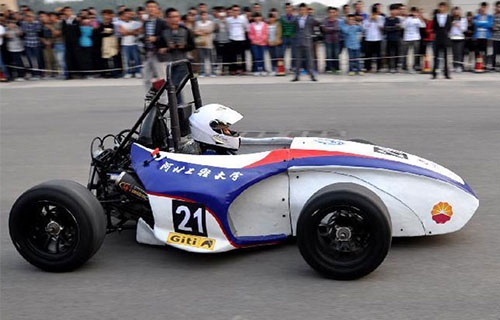

Chen Yuan, PR director of a multinational advertising company whose clients include a number of big-name pharmaceutical outfits, said infant formula marketing ploys often come in the guise of welfare and educational projects.
"Apart from getting brand pamphlets distributed either by nurses or sales reps - some of whom don white gowns, which may mislead patients - pregnant women were often given lectures on feeding, with free samples of formula handed out at the conclusion," said mother of two Chen, who said she was given a Dumex gift card by her attending nurse at a military hospital in Beijing. The card could be exchanged for free samples at the hospital's pharmacy.
In a public statement issued in the wake of the scandals, Danone, the parent company, said the actions of some of its employees "were found to be related to a company-sponsored mother-and-child health education program."
"However, even though the program is in good condition, it has been found that the educational program was not appropriately managed in some cases. This resulted in some practices that contradicted the purpose of the program, which violated companywide policies," the statement said.
Whether it was a well-intentioned educational program that went awry or a clever marketing strategy with exploitable loopholes is a question that may remain unanswered. But for the moment, the sales reps and the hospitals have refrained from any further indiscretions, fearing a backlash.
"So many eyes are on us - we wouldn't dare to do anything we shouldn't," said Gao Man, a 33-year-old nurse at Beijing's Capital Institute of Pediatrics, referring to the arrests in September of a number of medical professionals who had accepted cash bribes or gifts from sales reps. As a hospital employee, Gao had received an "internal discount" from Dumex; buy one tin and get a smaller one free.
For observers and concerned parents whose confidence has already been dented, Gao's remarks may only serve to provoke further qualms.
For Chen, the problem is unlikely to be resolved anytime soon. "In fact, many people believe that some companies will return to underhand practices, once the doctors and reps have ridden out a tension-filled period," she said.
For one thing, Chinese parents' overdependence on doctors will never go unnoticed by the formula producers, said Gao. "Most parents are having their first, and most probably only, child. They don't know anything, except that they can't afford to make mistakes," she said. "Overwhelmed in the formula aisle, it's only natural that they turn to doctors for badly needed advice."
Although breastfeeding is strongly promoted by most Chinese hospitals, doctors still have ample opportunities to influence parents when there's a shortage of breast milk, something that usually happens as the child grows and requires more nutrition. Moreover, the baby formula companies are more than willing to make a long-term investment.
 Robots kick off football match in Hefei
Robots kick off football match in Hefei
 Aerobatic team prepare for Aviation Convention
Aerobatic team prepare for Aviation Convention
 China Suzhou Electronic Manufacturer Exposition kicks off
China Suzhou Electronic Manufacturer Exposition kicks off
 'Squid beauty' and her profitable BBQ store
'Squid beauty' and her profitable BBQ store
 A day in the life of a car model
A day in the life of a car model
 Vintage cars gather in downtown Beijing
Vintage cars gather in downtown Beijing
 Asia Bike Trade Show kicks off in Nanjing
Asia Bike Trade Show kicks off in Nanjing
 Student makes race car for 4th Formula SAE of China
Student makes race car for 4th Formula SAE of China